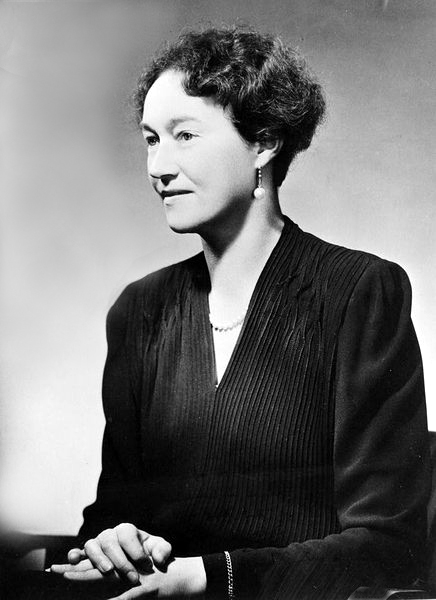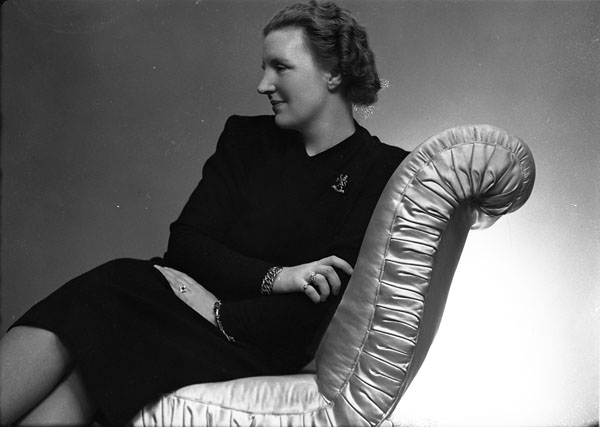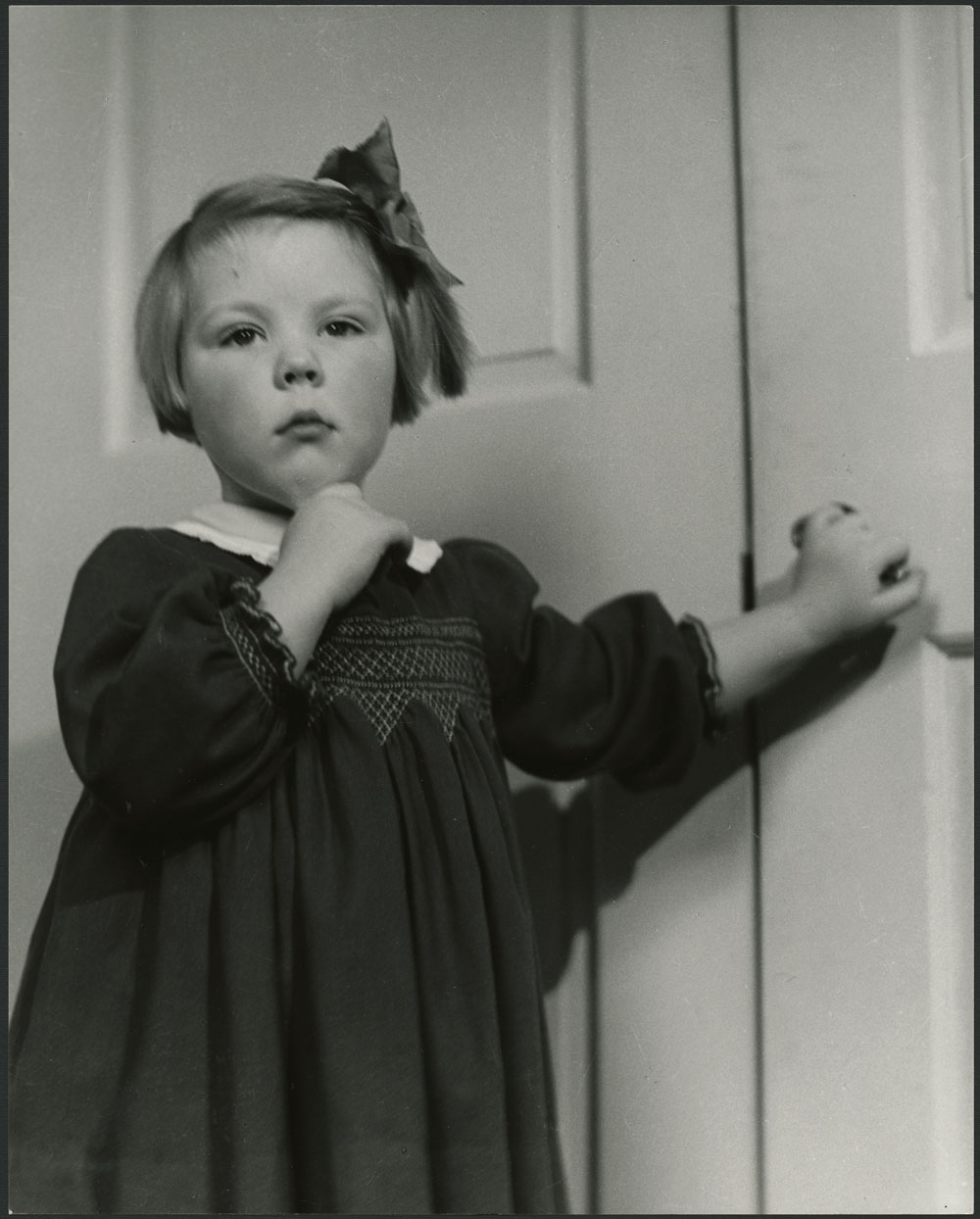Charlotte Adelgonde Élisabeth Marie Wilhelmine, Grand Duchess of Luxembourg from 1919 to 1965 (born 23 January 1896 in Colmar-Berg, Luxembourg; died 9 July 1985 in Fischbach, Luxembourg). Grand Duchess Charlotte was one of several European royals who took refuge in Canada during the Second World War. She and her family lived in Quebec from 1940 to 1944 while the wartime Luxembourg government in exile was based in Montreal.

Early Life
Charlotte was the second of the six daughters of Grand Duke Guillaume IV of Luxembourg (1852–1912) and Princess Maria Ana of Portugal (1861–1942). In 1907, Grand Duke Guillaume introduced female succession in Luxembourg to allow his daughters to reign in the Grand Duchy. On 25 February 1912, Charlotte’s elder sister Marie-Adélaïde (1894–1924) succeeded their father as reigning Grand Duchess of Luxembourg. Marie-Adélaïde became unpopular due to her active involvement in politics and her decision to keep Luxembourg neutral during the First World War, which prompted accusations that she had collaborated with Germany. On 14 January 1919, Grand Duchess Marie-Adélaïde abdicated in favour of her younger sister Charlotte and retired to a convent, where she died of influenza in 1924.
Accession
On 28 September 1919, 77.8 percent of the people of Luxembourg voted for the country to remain a monarchy with Charlotte as Grand Duchess. A new constitution limited the power of the monarchy, and Charlotte was careful to avoid the overt political activities of her elder sister Marie-Adélaïde, instead reigning as a constitutional monarch.
Marriage and Children
On 6 November 1919, Charlotte married her cousin Prince Félix of Bourbon-Parma at the Cathedral of Our Lady of Luxembourg. Prince Félix was the 18th of the 24 children of Duke Robert of Bourbon-Parma and a younger brother of the former Empress Zita of Austria. Charlotte and Félix had six children: Jean, Grand Duke of Luxembourg (1921–2019), Princess Elisabeth (1922–2011), Princess Marie-Adélaïde (1924–2007), Princess Marie-Gabrielle (1925–2023), Prince Charles (1927–77) and Princess Alix (1929–2019).
The Second World War
On 9 May 1940, Nazi Germany invaded and occupied Luxembourg. Charlotte, her family and her ministers fled to France, where they resided at the Château de Montestruc along with Charlotte’s sister-in-law, the former Empress Zita of Austria and her children. After the fall of France to Nazi Germany, Charlotte, Zita and their families fled to Portugal (their mothers were Portuguese princesses) and then to North America. Prince Félix and the Luxembourg royal children traveled directly to the United States on an American warship while Grand Duchess Charlotte traveled first to London before being reunited with her family. Charlotte and her sister-in-law Zita both spoke French and settled with their families in Quebec, where their respective children could continue their education in the French language.
Luxembourg Government in Exile
Grand Duchess Charlotte and her family arrived in Quebec on 14 October 1940. On 12 November 1940, Prime Minister Pierre Dupong of Luxembourg announced that Luxembourg’s government in exile would be based in Montreal. Grand Duchess Charlotte, her husband Prince Félix and their six children joined the government in exile in Quebec, residing on a farm 30 kilometres outside Montreal. Grand Duchess Charlotte’s eldest son, the future Grand Duke Jean, enrolled at Laval University, where he studied law, politics and economics. Her daughters attended the Collège Jésus-Marie de Sillery in Quebec City, and her younger son Charles attended the Collège des Jésuites de Québec. The family enjoyed winter sports in Quebec, including skiing.
In January 1941, Grand Duchess Charlotte visited the governor general and viceregal consort, the Earl and Countess of Athlone, at Rideau Hall in Ottawa. Grand Duchess Charlotte and members of her family made frequent visits to the United States to meet with President Franklin Roosevelt and with members of the Luxembourgish diaspora. The Globe and Mail reported on 21 October 1940 that the Earl of Athlone, President Roosevelt and Grand Duchess Charlotte had lunched together at Roosevelt’s Hyde Park estate on the Hudson River, stating that “Complete informality marked the occasion.” Charlotte also founded a charity in aid of Luxembourgers displaced by the war. In 1944, Charlotte and her family traveled to London, anticipating the liberation of Luxembourg and the end of the war.
During the war, Grand Duchess Charlotte made numerous broadcasts on BBC radio encouraging the resistance in Luxembourg. In her first BBC broadcast on 5 September 1940 from London, before she joined her husband and children in North America, she stated, “I know and I feel it — you all stand like one man in your loyalty to the throne and the homeland. More than ever, we want to remain what we are: a free and independent Luxembourg.” On 13 September 1942, she delivered a compassionate broadcast to families in Luxembourg whose sons had been forcibly conscripted into the German army. She was nicknamed “The Propagandist in Pearls” due to her elegant public image and forceful radio broadcasts.
Later Life
On 14 April 1945, Grand Duchess Charlotte returned to Luxembourg. She received a rapturous welcome from the people of Luxembourg, who viewed her as the mother of the nation and a heroine of the resistance. Her eldest son Grand Duke Jean had participated in the liberation of Luxembourg in 1944 as part of the British army, and her husband Prince Félix escorted her sister Princess Antonia back to Luxembourg from Dachau concentration camp, where she had been imprisoned and tortured. Over the course of Charlotte’s 45-year reign, Luxembourg prospered, becoming a financial centre in Europe.
Grand Duchess Charlotte abdicated on 12 November 1964, and her son Jean succeeded her as Grand Duke of Luxembourg. Charlotte stated, "I feel I have reached the age to retire, and I think that Jean is the age to take over. After all, I am 68 now."
Legacy
In the 21st century, there continues to be a close relationship between Luxembourg and Canada, especially Quebec, which participates in economic and cultural exchanges with Luxembourg. In June 2022, Grand Duchess Charlotte’s great-grandson, Crown Prince Guillaume, led a trade delegation to Canada. In a speech in Toronto, Prince Guillaume expressed “a deep respect and a sincere gratitude towards the Canadian culture of welcome, not least because it offered shelter to my family during the darkest hours of our contemporary history.” The Rue Luxembourg in Quebec City is named for Grand Duchess Charlotte and her family.

 Share on Facebook
Share on Facebook Share on X
Share on X Share by Email
Share by Email Share on Google Classroom
Share on Google Classroom






